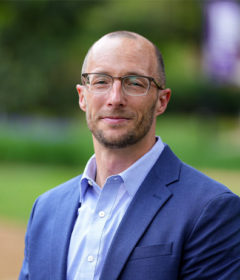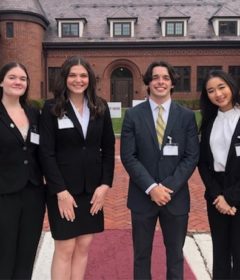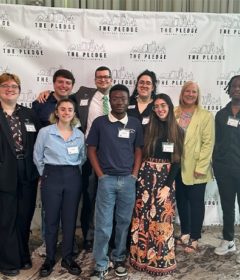The Debate over Cuba
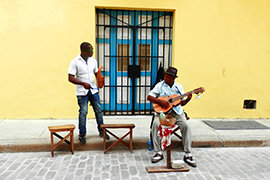
Some Americans are lining up to travel to Cuba and do business there, but Mauricio Claver-Carone wants them to know the consequences of spending their money in the Communist-island nation.
All the hotels in Cuba are owned by the Cuban military and the Castro brothers, said Claver-Carone, executive director of the Cuba Democracy Advocates, a political action committee in Washington, D.C.
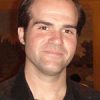
“The Castro brothers (Raul and Fidel) run more hotel rooms than Walt Disney,” he said, referring to GAESA, the conglomerate that owns retail chains, hotels, restaurants, gas stations and rental car fleets in Cuba and is run by Raul Castro’s son-in-law, General Luis Alberto Rodriguez. “It’s their main source of income.”
That illustrates the controversy over President Obama easing restrictions on travel to Cuba, as well as trade and commerce between the two countries, in an ongoing push to get Congress to repeal America’s 56-year-old trade embargo.
Claver-Carone and three other panelists will give both sides of the debate at Stetson University’s Cuba Investment Forum on Wednesday, Nov. 9, at 6 p.m. in the Stetson Room in the CUB.
The forum was the idea of Stetson President Wendy B. Libby, Ph.D., and Stetson alumnus, Leopoldo Fernandez, both of whom wanted the university to host an academic conference to discuss the opposing views on normalizing relations with Communist Cuba.

Stetson Political Science Professor William Nylen, Ph.D., organized the forum after returning from Cuba on an unrelated 10-day educational seminar last summer. He hopes to return to the island and possibly take Stetson students with him. In Stetson’s School of Business Administration, Associate Professor William Andrews, Ph.D., already has led a number of student trips to Cuba.
Nylen said he recused himself from speaking on the panel because he has traveled to Cuba and could be seen as biased by those who oppose any American intervention in Cuba while a Communist regime remains in power.
“In my own opinion, the embargo on Cuba is an anachronism,” Nylen said. “The Cold War has been over for a long time. It’s a counterproductive policy. … It really is punishing the Cuban people, not the government.”
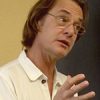
Communist dictators may make money off American tourists visiting the island. But they already live well now, said Nylen, who drove by “a beautiful massive beach residence” of Fidel Castro while on his trip to Cuba and an equally massive Castro residence in Havana.
“These guys live well,” he said. “The embargo hasn’t changed that. What it has done is impoverished and limited the opportunities for the populace.”
Earlier this month, President Obama lifted more restrictions against Cuba, this time removing the $100 limit on bringing Cuban cigars and rum into the United States, The New York Times reported. Obama has been restoring ties with Cuba for nearly two years. Last year, embassies reopened in Washington, D.C., and Havana. And last August, direct commercial flights resumed from America to Cuba, according to The Times.
Claver-Carone said the media “hype” about Cuba hasn’t “translated into people going in droves.” He believes the heightened interest is “a narrative pushed a lot by the administration.”
Claver-Carone’s mother was born in Cuba and he graduated from high school in Orlando. He once visited Stetson’s DeLand campus before deciding to seek his undergraduate degree at Rollins College in Winter Park, closer to home, he said, and then a law degree from Catholic University of America.
“You hear people say, ‘Oh, we’re missing a golden opportunity and millions of dollars because we could be selling our products in Cuba,” he said. “Okay, now let’s hear the other side of the story. All we ask for is to have an honest debate.”
For him, the fight to free Cuba is about ending human rights abuses there. Joining him on the panel Nov. 9 will be Angel de Fana, a former Cuban political prisoner from 1962 to 1983.
On the other side of the debate will be two economists who believe progress can come from allowing Cuba to continue to join the global economy and allowing its people to own private businesses that will lift their standard of living, Professor Nylen said.
They are Emily Morris, Ph.D., an economist and honorary research associate at the University College London Institute of the Americas, and Ricardo Torres, Ph.D., an economist and professor at the Center for the Study of the Cuban Economy at the University of Havana.
For more information about the forum, contact Stetson Professor Nylen at [email protected].
-Cory Lancaster

